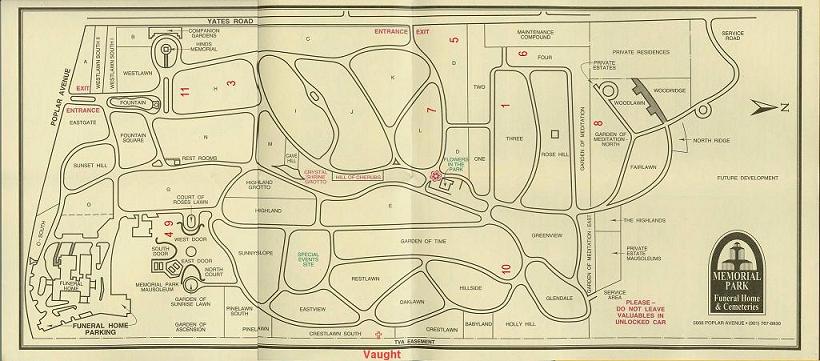Al Jackson Jr.
AKA:
The Human Timekeeper
Birth Name:
Albert J. Jackson Jr.
Birth Date:
November 27, 1935
Birth Place:
Memphis, Tennessee
Death Date:
October 1, 1975
Place of Death:
2885 Central Avenue, Memphis, Tennessee
Age:
39
Cause of Death:
Murdered (unsolved)
Cemetery Name:
New Park Cemetery
Claim to Fame:
Music
Dubbed “The Human Timekeeper” for his impeccable rhythm and timing, Al Jackson, Jr. was a member of the seminal Stax Records house band Booker T. and the MG’s and provided the beat for the likes of Al Green, Sam & Dave, Otis Redding, Tina Turner, Eric Clapton, and Albert King during his brief yet illustrious career.
Cemetery Information:
Final Resting Place:
New Park Cemetery
4536 Horn Lake Road
Memphis, Tennessee, 38119
USA
North America
Map:

Grave Location:
Lower Good ShepardGrave Location Description
Upon entering the cemetery, turn left and then turn right at the second road. Drive 150 feet and Jackson’s upright monument is just off the road about 40 feet on the left.
Grave Location GPS
35.0268500, -90.0684500Photos:
[+]
[+]
[+]
[+]
[+]
[+]
[+]
[+]
[+]
FAQ's
Al Jackson Jr. was born on November 27, 1935.
Al Jackson Jr. was born in Memphis, Tennessee.
Al Jackson Jr. died on October 1, 1975.
Al Jackson Jr. died in 2885 Central Avenue, Memphis, Tennessee.
Al Jackson Jr. was 39.
The cause of death was Murdered (unsolved).
Al Jackson Jr.'s grave is in New Park Cemetery
Read More About Al Jackson Jr.:
Videos Featuring Al Jackson Jr.:
See More:
Back to Top



